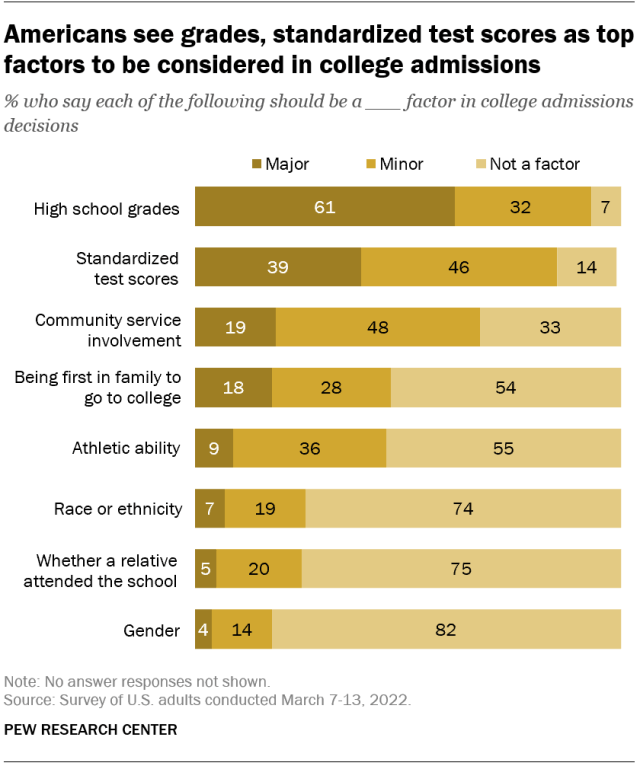Do you support Affirmative Action? It depends how you ask it!
According to the data from the visual above, what was the most common answer to the following: “Would you support or oppose an affirmative action program for higher education that decreases the share of Asian and white students at selective institutions in the United States?”
According to the data from the visual above, what was the most common answer to the following: “Do you generally support or oppose affirmative action in college admission?”
According to the data from the visual above, what was the most common answer to the following: “Would you support or oppose an affirmative action program for higher education that increases the share of Black and Hispanic students at selective institutions in the United States?”
Based on the data above, explain whether most Americans support affirmative action.
The way a question is asked or framed can determine the results of a poll. How is the concept of framing illustrated in the data from the visual above?
The term affirmative action has appeared in legislative and governmental documents going back to the 1930s and was specifically applied in reference to programs designed to address racial discrimination (particularly in employment and education) in the John Kennedy and Lyndon Johnson administrations more than a half-century ago. It has been a consistent presence in discussions of discrimination and diversity across the decades since. How would you answer the three questions from the visual above?
How do you think affirmative action will impact your college application process?
The Supreme Court is poised to upend decades of precedent on affirmative action. This Monday, the justices heard two cases challenging race-conscious admissions policies at Harvard University and the University of North Carolina (which until the 1950s did not admit Black students). The universities use race as one of many factors when deciding which applicants to accept — a practice that has been affirmed multiple times by the Supreme Court, including in a 2003 case where the justices ruled that ensuring racial diversity in higher education is important enough to justify the limited use of race in college admissions. Now, just months after the Supreme Court upended a decades-old precedent on abortion rights, the precedent on affirmative action is in peril. How does this case illustrate the concept of stare decisis and can you think of any landmark Supreme Court case that overturned precedent?
When citizens disagree on a court ruling they can use the legislative process to try to remedy the court’s ruling. This year’s Dodds ruling overturned Roe v. Wade’s protection of abortion. Although public opinion on abortion is complex, Americans mostly did not want the Supreme Court to overturn Roe v. Wade and end the constitutional right to abortion. And since its overturning, state and federal legislatures have made many attempts to protect abortion rights. The court will rule on affirmative action in June. A ruling limiting or ending affirmative action in higher education would have a huge impact on college admissions. Based on the data above, do you think federal and state governments will try to write legislation promoting affirmative action?
Based on the visual below* how much do Americans want race to be a factor to be considered in college admissions?
Learning Extension
Listen to this account of this week’s Supreme Court oral arguments about affirmative action and listen to some of the highlights in the audio clips below.
And although they aren’t one of the 14 Landmark Supreme Court cases on the AP Exam, this NPR story outlines some of the recent Supreme Court rulings on affirmative action.
Action Extension
Ask the three polling questions above to a number of respondents (the larger the number of respondents the more meaningful your data) and compare the answers you received from the three different questions. Share your results in class.


